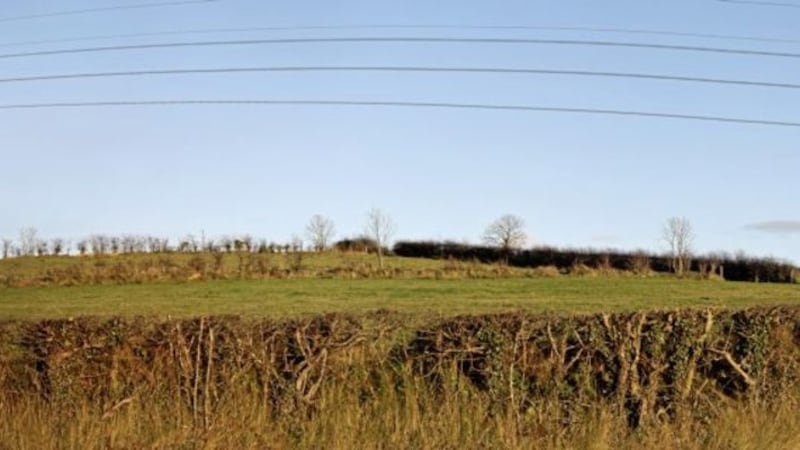HALTING a planned new £200m cross-border electricity line could see Northern Ireland's "lights go out" by 2021, the High Court heard yesterday.
Counsel for the Department of Infrastructure stressed the urgency surrounding a legal challenge to its decision to approve the north-south interconnector.
Up to 6,000 people who own land or live along the proposed route of the pylons and lines are seeking to have the planning permission judicially reviewed.
In January the Department announced it was giving the go-ahead for the Northern Ireland section of the overhead scheme between Tyrone and Meath.
But a group formed under the name Safe Electricity A&T (SEAT) issued proceedings in a bid to have the decision quashed.
They claim a development of such regional significance was wrongly approved by a senior civil servant in the absence of a minister.
In a separate case last month the High Court held that a permanent secretary did not have power to give the green light for a £240m waste incinerator at Mallusk on the outskirts of north Belfast.
That ruling is being appealed in an attempt to clarify the authority of civil servants without a functioning executive.
However, based on the current legal interpretation, the Department's lawyers accepted SEAT has established an arguable case at this stage on the constitutional point.
It was contended however, that a second ground of challenge about the potential impact to wildlife should be dismissed.
Barrister Charles Banner, for the Department, described the interconnector scheme as having "profound urgency and importance".
He told the court work is on hold amid uncertainty due to the legal challenge.
"The lights could go out in 2021 if this project doesn't proceed," Mr Banner claimed.
The overall initiative to join electricity grids in the two jurisdictions has also approved in the Republic.
It will involve 85 miles of overhead cables and lead to new pylons being built.
Business chiefs have backed the joint scheme between the System Operator for Northern Ireland (SONI) and EirGrid in Ireland to reduce costs and ensure electricity supplies.
But residents in border areas who objected to the interconnector instead wanted undergound cables for health an environment reasons - an option dismissed as unfeasible.
SEAT's challenge is centred on approval for more than 100 towers and high-voltage transmission lines.
They also claim the scheme lacks the scientific certainty required under a habitats directive that no harm will be caused to wildlife.
The hearing on whether to grant leave to seek a judicial review was adjourned for amendments to the legal papers.
Mr Justice McCloskey emphasised the need for clarity and certainty "given the obvious major public interest."
Outside court solicitor Paul Farrell of McIvor Farrell, who is representing SEAT, claimed 6,000 landowners were adversely affected by the planning approval.
He added: "For such a decision to be taken by an unelected and politically unaccountable civil servant should cause the public grave concern and will form part of out further submissions to the court."








